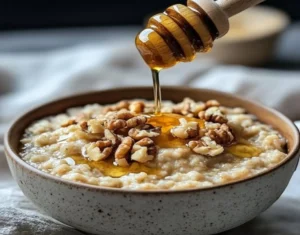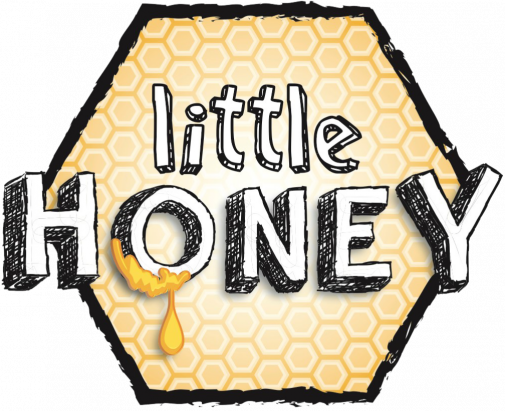
Sidr Honey Straws Specialist Singapore
Is 2 tablespoons of honey a day too much?
Introduction
Ever wondered if your daily honey spoonfuls are doing more harm than good? With honey’s rise as a natural sweetener and health booster, it’s no surprise people get curious about their daily honey intake. After all, honey feels like nature’s candy—delicious, wholesome, and packed with benefits. But is 2 tablespoons of honey a day too much? Let’s dive in and get the buzz on honey consumption.
Understanding Honey and Its Nutritional Content
So what exactly is honey made of? At its core, honey is a mix of natural sugars—primarily fructose and glucose, plus a handful of antioxidants, vitamins, and minerals that give it some serious health cred. Two tablespoons of honey pack about 128 calories and roughly 34 grams of sugar. That’s a decent sugar hit, even though it’s a natural sweetener rather than processed sugar.
By the way, honey’s antioxidants aren’t just fancy extras—they help fight free radicals, those pesky molecules that speed up aging and inflammation. This is why honey isn’t just sweet but also a small health powerhouse.
Recommended Daily Sugar Intake
Here’s where things get tricky. Health bodies like the WHO and FDA suggest limiting added sugars to about 25 grams (around 6 teaspoons) per day for most adults. Since 2 tablespoons of honey contain more than that, it technically exceeds these recommended sugar intake limits.
But—and this is a big but—honey isn’t just sugar. Its natural compounds make it a smarter choice compared to refined sugars. Still, moderation is key to keeping your health in check.
Health Benefits of Honey
Honey isn’t just a delicious natural sweetener; it’s a powerhouse of health benefits that make it a popular choice for many health-conscious people. Let’s explore why incorporating honey into your daily routine can be a sweet win for your wellness.
Antioxidant Properties: Fighting Free Radicals Naturally
One of the standout honey benefits is its rich content of antioxidants. These compounds help protect your cells from damage caused by harmful molecules called free radicals. Over time, free radical damage can contribute to aging, inflammation, and various chronic diseases.
Sidr honey, in particular, is loaded with powerful antioxidants that boost your immune system and support overall wellness. Including honey in your diet can help reduce oxidative stress, keeping you feeling youthful and vibrant.
Natural Enzymes: The Antibacterial and Healing Powerhouse
Honey contains natural enzymes that produce hydrogen peroxide—a natural antibacterial agent. This quality makes honey an effective remedy for minor wounds, cuts, and burns. Applying honey to small injuries can prevent infection and promote faster healing.
It’s no surprise that people often turn to honey for soothing sore throats and cough relief. The antibacterial properties calm irritation while its thick texture coats and protects the throat lining. So when you’re feeling under the weather, honey is a gentle yet powerful ally.
Honey for Energy: The Natural Pick-Me-Up
Looking for a healthier alternative to those sugar-loaded energy drinks? Honey is your best friend here. It provides a quick source of natural energy thanks to its easily digestible sugars, primarily glucose and fructose.
These sugars rapidly enter the bloodstream, giving you an instant energy boost without the crash that processed sugars often cause. Whether you need a mid-afternoon lift or a pre-workout boost, honey can power you through naturally.
Additional Nutrients: Vitamins and Minerals
Besides antioxidants and enzymes, honey contains small amounts of essential vitamins and minerals such as vitamin C, calcium, and iron. While not a significant source alone, every little bit counts when it comes to overall nutrition.
These nutrients contribute to your body’s daily needs, supporting bone health, immune function, and oxygen transport.
Honey as a Natural Sweetener: A Healthier Choice
Compared to refined sugars, honey offers more than just sweetness. It’s a natural sweetener that comes packed with beneficial compounds, making it a preferable choice for those looking to reduce processed sugar intake.
Of course, moderation is key, but swapping out refined sugar for honey in your tea, baking, or recipes can add flavor and health perks simultaneously.
Potential Risks of Consuming 2 Tablespoons of Honey Daily
But hold your horses—too much of a good thing can be risky. For starters, those 34 grams of sugar can spike your blood sugar and insulin levels, especially if you’re diabetic or sensitive to sugar.
There’s also the concern of honey and weight gain if you don’t balance it with your daily calorie needs. And don’t forget, some people have honey allergies or sensitivities, so daily honey intake might not be safe for everyone, particularly young children and people with certain health conditions.
Comparing Honey Intake to Other Sweeteners
When you stack honey up against refined sugar, it’s like comparing a vintage wine to cheap soda. Honey’s complex makeup and natural antioxidants put it ahead of plain sugar. However, like any natural sweetener, honey should be enjoyed in moderation.
Keep in mind, just because honey is “natural” doesn’t mean you can pour it on like syrup. Balancing your overall sugar intake is crucial.
What is the healthiest natural sweetener?
Expert Opinions and Scientific Studies
Science gives us a clearer picture. Many studies highlight that moderate honey consumption can support health without the risks of refined sugar. Experts often recommend keeping honey consumption to about 1-2 tablespoons a day—right in the sweet spot of benefit without overload.
In other words, 2 tablespoons of honey daily is generally safe honey consumption, but personal health factors matter.
Practical Recommendations
Wondering how to fit honey into your diet without tipping the scales? Here are some tips:
- Use honey as a replacement for refined sugars in tea, baking, or breakfast bowls.
- Watch for signs like energy crashes or weight gain that may hint you’re overdoing it.
- Balance honey intake with other natural remedies and a healthy diet.
- If you have diabetes or allergies, check with your healthcare provider.
Remember, moderation in honey intake is your best friend.
Conclusion
So, is 2 tablespoons of honey a day too much? It depends. For most people, it’s a healthy dose packed with antioxidants, natural sweetness, and healing properties. Just keep an eye on your total sugar consumption, listen to your body, and enjoy honey’s many benefits mindfully.
At Little Honey, we believe honey should be savored, not overindulged. Whether you’re fueling up with Sidr honey or exploring other varieties, balance is the key to sweet success.
FAQ
Q: Can eating 2 tablespoons of honey daily cause weight gain?
A: It can, if your overall calorie intake exceeds your daily needs. Moderation is essential.
Q: Is honey safe for diabetics?
A: Diabetics should consult healthcare providers because honey affects blood sugar.
Q: How does honey compare to refined sugar?
A: Honey offers antioxidants and health benefits, unlike empty calories in refined sugar.
Share this post :
Categories
Latest Post


Boost Your Health Naturally: Honey Superfoods for Immunity

Festive Kueh Recipes for Hari Raya & Chinese New Year





